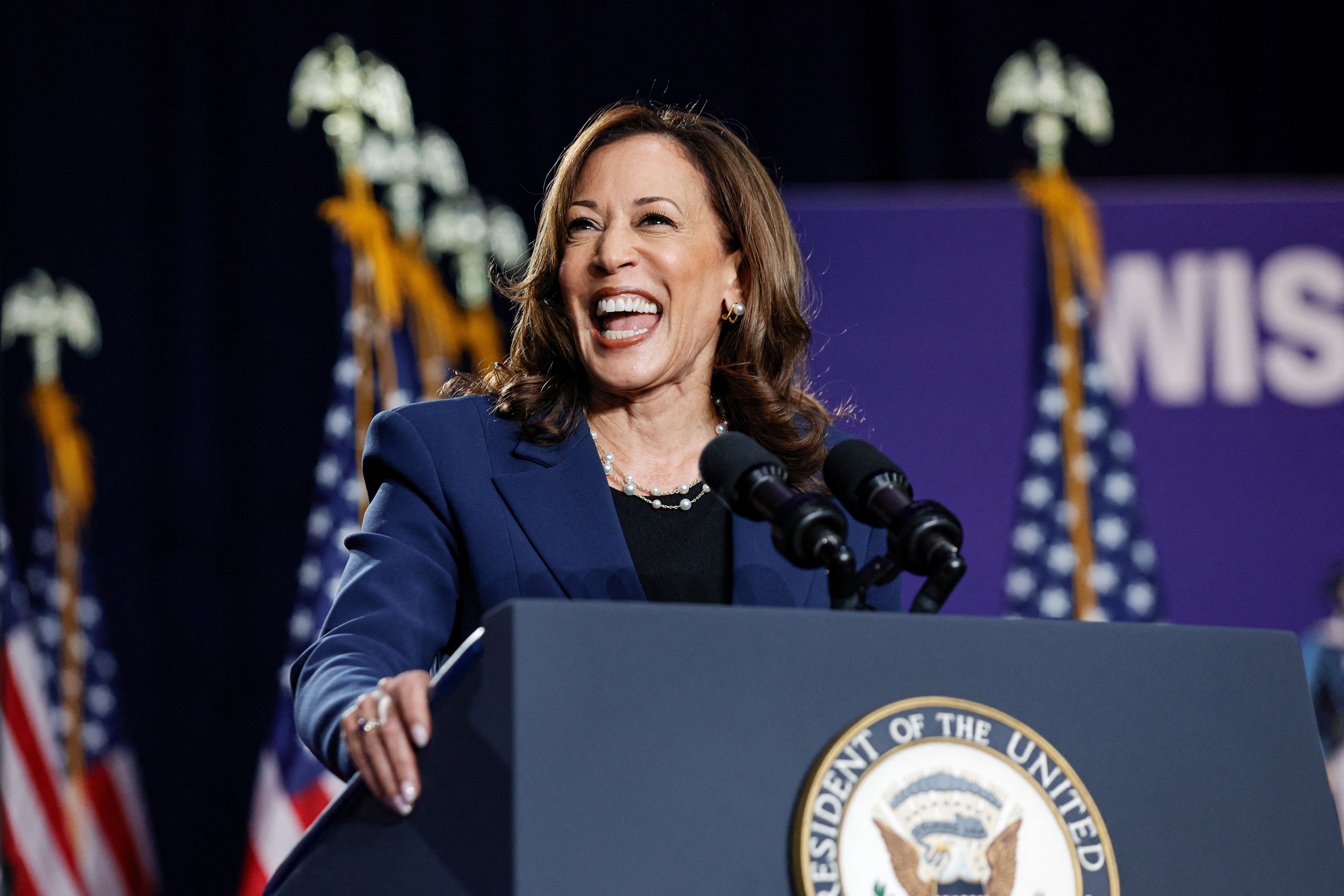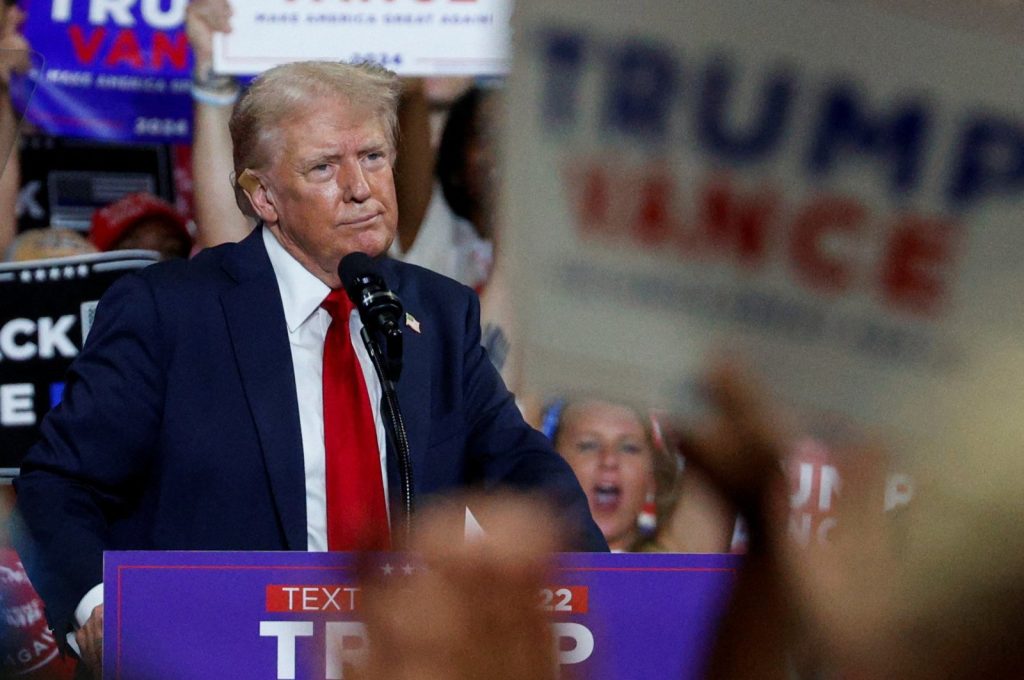With the U.S. presidential race looking all but set to come down to a Donald Trump versus Kamala Harris ticket, the outcome of the November election will impact agitated relations with Türkiye as well.
Regardless of whether a Democrat or a Republican is in the White House, Ankara will have much to tackle in its dealings with Washington in the upcoming period, a range of differing stances that threaten to evolve into full-blown crises if left unattended any longer.
Experts argue that a Harris presidency could preserve the Joe Biden-installed status quo if not guided by more Türkiye-friendly advisers, while Trump’s return could at the least reignite long-dead dialogue on the Turkish-U.S. front.
During the four years Trump steered the White House, relations with Türkiye could best be described as “turbulent,” marked by several high-tension incidents, including the 2018 Pastor Brunson crisis, the YPG problem and Washington’s attitude on FETÖ, that often highlighted the downward trajectory of the past decade.
Now, with Trump’s potential return to power, Türkiye can look forward to a return to dialogue, according to Çağrı Erhan, the president of Altınbaş University and a member of the Presidential Security and Foreign Policies Council.
“This was not the case during Biden’s term when Barack Obama’s bureaucrats came back to power and channels of dialogue were essentially eliminated and several issues like the F-16 deal, F-35 fighter jets, northern Syria were left hanging,” Erhan said.
Syrian snag
Problems that began during Obama’s presidency, or even farther back in 2003 during the Iraqi war, continued into Trump and Biden’s terms, but it was Trump who more often heeded Türkiye’s concerns about the YPG, the Syrian offshoot of the terrorist group PKK, that has occupied the oil-rich region since 2015.
The PKK took up arms against the Turkish state in 1984 to achieve so-called Kurdish self-rule in southeastern regions and is designated a terrorist organization by Ankara, as well as the United States and the European Union.
Washington calls the YPG its ally under the pretext of driving out remaining Daesh terrorists, something Ankara considers as support of a threat against its national security. Turkish cross-border airstrikes have targeted the YPG in the region since 2016.
At the time, Trump showed a willingness to address Türkiye’s concerns over the YPG, promising to remove it from the Turkish border area but later failing to do so.
It was the U.S. military’s pressure that kept him from making any radical changes to Washington’s Syria policy about Türkiye, according to Kadir Üstün, the executive director at the Washington branch of the Foundation for Political, Economic and Social Research (SETA).
“Trump’s reelection could reenergize the management of certain crises, including Syria,” Üstün told Daily Sabah. “In that case, the strategic dialogue mechanism also needs a strong boost and his administration must care about political coordination with Ankara.”
In the past four years, in stark contrast to frequent one-on-ones with Trump, Biden has not paid a single visit to Türkiye, nor did he host President Recep Tayyip Erdoğan in the White House. Adding to the grievances, his administration has refused to cut off support to the YPG or extradite Gülenist Terrorist Group (FETÖ) members, including its ringleader Fetullah Gülen, who oversaw a deadly coup attempt in Türkiye in July 2016.
More recently, the NATO allies have been at loggerheads over Israel’s brutal war on the Gaza Strip. Ankara, a staunch defender of the Palestinian cause, has repeatedly slammed the U.S. for giving express military and political shield to Israel and its “war crimes.”
“This attitude alone demonstrates Biden’s perspective on the Middle East,” Erhan said, whom he accused of sporting a “lack of seriousness” in failing to keep promises, particularly with the F-16 deal now stuck at Congress.
He believes under Trump, Ankara and Washington must navigate a three-tiered negotiation process to address problems like Syria, Gaza, fighter jets, FETÖ and trade, although Trump’s firm support of Israel is still “unacceptable” for Türkiye.

Harris’ elites
Erhan doesn’t believe there is any indication Harris, “who has no known foreign policy,” could undo the Biden-inflicted damage on bilateral issues or introduce fresh policies toward Türkiye, either.
Üstün, however, is more optimistic about a foreign policy shift from Harris, citing her national security adviser Philip Gordon’s 2008 book “Winning Türkiye,” proposing plans to ease tensions in the region.
“Since her foreign policy knowledge is incomparable to Biden’s, she will seek out more consultations and depending on who she will appoint as Secretary of State or national security adviser, her presidency could create a positive dynamic for Türkiye,” he said.
According to international relations expert Murat Aslan, however, any sympathy or anti-sympathy from the U.S. toward Türkiye is irrelevant in shaping the White House’s Türkiye policy.
What matters is how the U.S., which, independent of Biden, Trump, or Harris, adheres to its own state tradition, positions Türkiye pertaining to global issues, Aslan quipped.
“The U.S. interests have led Washington to cooperation in Europe, keeping Asia-Pacific on its axis and a state of competition with Türkiye in the Middle East,” Aslan said. “I don’t think this will change any time soon.”
“It’s not realistic to expect Harris to change U.S. engagement with Türkiye if she maintains (Biden’s) ruling elite,” he said.
Aslan argued that the more relations are strained with Türkiye, the more support Washington lends to the YPG and the more Türkiye’s “existential threat motivation” surges in the fields the allies compete.
“Washington must decide if it wants to compete with Türkiye in the region, especially on Syria, or cooperate with it,” he said.
Trump’s terms, Israel
Erdoğan, who is known for his cordial relationship with Trump, recently said, “We are planning to do very interesting things” with the former U.S. president.
The Turkish leader could have meant that Trump is inclined to revise Middle Eastern policies and even make radical decisions, Üstün argued.
He also predicts Ankara and Washington will remain at odds over Palestine, especially after the U.S. has recognized Jerusalem as the capital of Israel, but Trump’s desire to “make history” by facilitating peace in Palestine and Ankara’s critical role in the conflict indicates a potential for close coordination for a two-state solution.
Aslan, however, argued Trump could make any normalization with Ankara conditional on normalization with Israel, as he has in the past with the Brunson crisis. Trump imposed sanctions on two Turkish ministers and doubled tariffs on Turkish metals, threatening to plunge the lira to secure Brunson’s release, who was jailed for two years on espionage charges.
Since Israel began bombing Gaza, killing nearly 40,000 Palestinians in retaliation to Hamas’ cross-border Oct. 7 attack, Ankara has been a vocal critic of Prime Minister Benjamin Netanyahu, as Erdoğan branded him the “Butcher of Gaza” and cut off all trade.
“Such a stipulation would put Türkiye in a dilemma,” Aslan said.
Still, he believes Trump, who has voiced positive remarks similar to Türkiye’s arguments on certain issues, could be directed by his presidential experience and manage more stability in relations with Türkiye come January.


